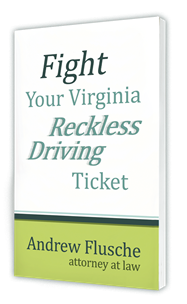You May Be Not Guilty of Passing a Stopped School Bus
The Virginia General Assembly made a mistake in the statutes that penalize passing a stopped school bus. Depending upon the offense date for your case, the charge may be beatable. I’ll explain how this turned out for one of my recent cases.
NOTE THAT CASE RESULTS DEPEND UPON A VARIETY OF FACTORS THAT ARE UNIQUE TO EACH CASE. PREVIOUS RESULTS DO NOT GUARANTEE OR PREDICT A SIMILAR RESULT IN A FUTURE CASE THAT I UNDERTAKE.
Transcription
Hello, I’m Andrew Flusche. I’d like to talk to you about a result from court a few days ago in Spotsylvania County. Before I do that let me give you a notice required by the state bar that every case is different. Every case depends on the facts and law of your case, and past results don’t indicate future success. With that out of the way, let me tell you about a case from Spotsylvania County.
I had a client who was charged with passing a stopped school bus. She was charged under just the traffic version, 46.2-844. That version of the law says basically that it’s a traffic infraction to pass a stopped school bus, and anybody doing so will be fined. The law sets forth a whole bunch of requirements of what the Commonwealth has to prove to make the case.
Basically, they have to prove that the bus was stopped, that the lights were on, that the bus was yellow and says “school bus,” that is was actually loading or unloading people, quite a few things like that. There are a lot of little things that make it a hard case for them to prove, just because the officers sometimes forget a piece when they’re testifying.
But in this case there is actually a very fascinating flaw in the law that we were able to use to get the case completely dismissed. There are two versions of passing a stopped school bus. One is the one my client was charged with, 844. The other one is a reckless driving version 46.2-859. What that law says, basically there is an error in it, or there was prior to March 22, 2011. So the law basically says that any person who “fails to stop a school bus” is guilty of reckless driving. They’re missing a key word, either “for” or “at” or some other language. It’s just a grammatical error in the statute. So it basically makes no sense and it’s almost just a nullity, it doesn’t really criminalize anything. Well, that law has since been changed. The legislature this past session passed an emergency amendment to the law and they’ve cleaned it up, and the reckless driving version is very solid now effective March 22, 2011.
But in my case, the offense took place before March 22, so we were dealing with the law before it was amended. 844 doesn’t have the flaw like 859 does. However, 844 does incorporate 859. So if you follow me, what my client was charged with says is that you’re guilty of passing a stopped school bus if in violation of 859 you do all these things. So you have to violate the flawed statute in order to violate the statute that my client was charged with. So what that basically means is that my client was not guilty because the statute had a flaw and the statute that she was charged under incorporated that flawed statute. The judge rightly dismissed the case.
This is one of those complicated legal arguments. You have to very closely read the statutes at hand. Even attorneys who read the statutes over and over and come up with new ideas and see new flaws in the law that are able to help clients get good results in court. Now, as I said at the beginning, every case is different and we always have to look at the facts of the case and the law at hand. That’s one reason that we do review the law, so we can see if there is something that we just haven’t seen before or something new that might have come up. Maybe the law has been amended and they’ve made a new error in it that could help you get a good result in court. So it always pays to talk with an attorney and have an expert on your side who can look at the law and see if there is something at hand that could help your case.




